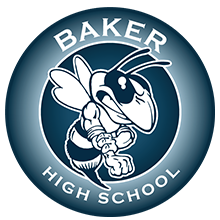AP Language Summer Reading 2024
Dear AP Language Student,
I am looking forward to working with you next school year in the Advanced Placement Language and Composition course. Because you selected this college level opportunity, I assume that you will dedicate yourself to give a consistently strong effort throughout the course. We will be working from day one, and every day we will engage with language in new, meaningful ways.
Below you will find your summer reading title.
- The Anthropocene Reviewed by John Green
To begin our analysis of language and rhetoric this summer, students will read a compilation of writings Written assignments for this text should be completed by following the attached instructions. All summer assignments must be submitted the first week of class. When you return, be prepared to take a test on your comprehension of the texts and to engage in discussions that exhibit your knowledge of these works.
If you have any questions about this assignment, please email me at jfick@mcpss.com. I am looking forward to working with you next school year and hope this desire is met by equal enthusiasm on your part. The course should prove to be enjoyable, challenging, and rewarding.
See you in August!
Mrs. Fick
Baker High School
AP Language and Composition
AP Language and Composition Summer Assignment
Overview: Students enrolled in the AP English Language and Composition course are required to complete the following summer reading: John Green’s The Anthropocene Reviewed. Read and annotate this text. Students need to be prepared for exams over this material which may include identification, quotations, discussion, and analysis. To prepare for this assessment, it is advised that students have a highlighter and a pen to mark the text as they read. In addition to the tests, further requirements are to complete the following analysis activities as well as participate in class discussions. Write and proofread the assignments and submit them at the beginning of our first class meeting.
The Anthropocene Reviewed
Read the introduction carefully—it is important you understand what is going on with the structure of the book’s passages. Then read the remainder of the book. After reading, review the book using the style of John Green. Then choose 4 other topics to create your own “review.” These will be approximately 250-500 words in length. You will submit a total of FIVE reviews.
| SAMPLE ORGANIZATION: |
|---|
| Explanation of topic Description Value/Significance Review |
Annotation Help: Use the following list to help direct your annotations as you read
1. Reader Response: Be able to trace your reactions, to ask questions in class, to remind yourself when you find answers to earlier questions. This should help note the writer’s effectiveness.
MAKE NOTE OF:
▪ Your reactions/emotional responses
▪ Your questions or lack of understanding or doubts (ask “Why?”)
▪ Your revelations: when “things” become clear to you, when you make links
▪ Similarities to other works: “Reminds me of…”
▪ Wonderful writing- passages that strike you artistically/aesthetically and why
2. Speaker: Think about how who the writer is and what he/she knows is communicated. This should help you decide the author’s credibility.
MAKE NOTE OF:
▪ Introductory facts: author backgrounds and relationship to the topic, bias, etc.
▪ Ethos- how the author establishes credibility and character on the given topic
▪ Note words and language that indicate the author’s attitude/tone and where it shifts/changes and why
▪ When the author directly or indirectly states how he/she feels
▪ Note key lines that stand out as crucial to the author’s argument
3. Occasion: Think about what caused the author to write about this topic and whether or not it is a valid reason.
MAKE NOTE OF:
▪ The author’s reasons for writing- what is the motivation?
▪ Historical, political, social issues surrounding the topic
▪ The author’s personal reasons and well as the greater world/national reasons for the piece
▪ Descriptions of class judgments, racism, gender biases, stereotypes, etc.
4. Audience: Think about what kind of person or people the author intended as the audience and whether or not the author is able to connect with that audience effectively.
MAKE NOTE OF:
▪ Evidence of who (and it can be more than one) the author is trying to reach.
▪ Where the author directly or indirectly address a specific audience
▪ Pathos- where the author appeals to your sense of emotion through anecdotes and figurative language
5. Purpose: Think about the author’s purpose in writing this book and whether or not they are effective in that purpose.
MAKE NOTE OF:
▪ Specific reasons for writing: informing, persuading, arguing, refuting, exemplifying- but make sure you note specifics.
▪ Logos: the author’s appeal to reason. Examine how he/she makes the reader believe in that purpose.
6. Subject: Think about what the book is discussing and whether or not the author shows why this subject is important.
MAKE NOTE OF:
▪ Elements related to the problem and issue
▪ How the author develops or deepens the aspects of the problem/issue
▪ How the author show the complications related to the subject and the implication
of it to you, the nation, the world, etc.
7. Authorial Devices and Structures in the Argument: Think about the author’s techniques in delivery and how effective author’s methods are for rhetorical purposes - the use of subtleties, patterns, style, structure, etc.
MAKE NOTE OF:
▪ Changes in point of view/emphasis
▪ Crucial language/vocabulary- not just a word that you don’t understand, but one that seems crucial to understanding the argument- look these up.
▪ Stylistic techniques: irony, satire, humor, exaggeration, repetition/patterns, possible symbols, significant metaphors and other notable literary and rhetorical devices
▪ How the author’s structure of the argument/book influence the reader and relate to the subject, audience, and purpose







